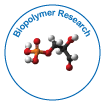Notre groupe organise plus de 3 000 séries de conférences Événements chaque année aux États-Unis, en Europe et en Europe. Asie avec le soutien de 1 000 autres Sociétés scientifiques et publie plus de 700 Open Access Revues qui contiennent plus de 50 000 personnalités éminentes, des scientifiques réputés en tant que membres du comité de rédaction.
Les revues en libre accès gagnent plus de lecteurs et de citations
700 revues et 15 000 000 de lecteurs Chaque revue attire plus de 25 000 lecteurs
Indexé dans
- Publons
Liens utiles
Revues en libre accès
Partager cette page
Abstrait
Clinical, Imaging and Pathological Characteristics of Brain Implanted Polylactic Co-Glycolic Acid Polymers Conjugated with Temozolomide
Jill Hicks, Simon Platt R, Shannon Holmes P, Elizabeth Howerth, Allison Haley, Jared Kaplan M and Edward Kaplan J
Definitive treatments for primary brain tumours are still sought. Slow- release local chemotherapy may provide a good effect and poly (lactide-co-glycolide) (PLGA) micro cylinders could allow this. We evaluated the neurological and histopathological consequences, and MRI visibility, of PLGA micro cylinders conjugated with Temozolomide and gadolinium implanted in normal canine brains. Eight purpose-bred beagles had cerebral implantation of micro cylinders combined with Temozolomide and gadolinium. MRI was performed following implantation and 28d later prior to necropsy and brain histopathology. All adverse events were associated with implantation and resolved. Dogs with six micro cylinders at 0 and 6.25% gadolinium had mild inflammation and all other dogs had greater brain inflammation, which increased with higher gadolinium concentrations and micro cylinder number. Micro cylinders with gadolinium were identifiable on MRI. Brain implantation of PLGA micro cylinders conjugated with gadolinium and Temozolomide is tolerated in healthy beagles. The lowest gadolinium percentage and micro cylinder number should be used if this therapy is pursued
Revues par sujet
- Agriculture et Aquaculture
- Biochimie
- Chimie
- Food & Nutrition
- Génétique et biologie moléculaire
- Géologie et sciences de la Terre
- Immunologie et microbiologie
- Ingénierie
- La science des matériaux
- Le physique
- Science générale
- Sciences cliniques
- Sciences environnementales
- Sciences médicales
- Sciences pharmaceutiques
- Sciences sociales et politiques
- Sciences vétérinaires
- Soins infirmiers et soins de santé
Revues cliniques et médicales
- Allaitement
- Anesthésiologie
- Biologie moléculaire
- Cardiologie
- Chirurgie
- Dentisterie
- Dermatologie
- Diabète et endocrinologie
- Gastro-entérologie
- Immunologie
- La génétique
- Maladies infectieuses
- Médecine
- Microbiologie
- Neurologie
- Oncologie
- Ophtalmologie
- Pédiatrie
- Recherche clinique
- Soins de santé
- Toxicologie

 English
English  Spanish
Spanish  Chinese
Chinese  Russian
Russian  German
German  Japanese
Japanese  Portuguese
Portuguese  Hindi
Hindi